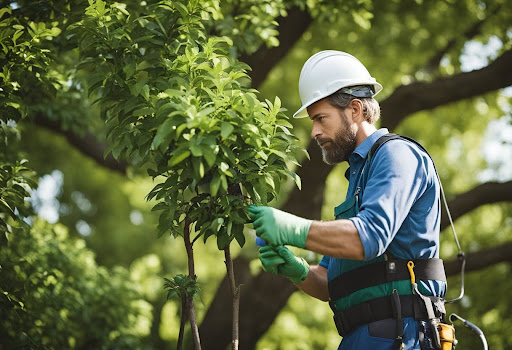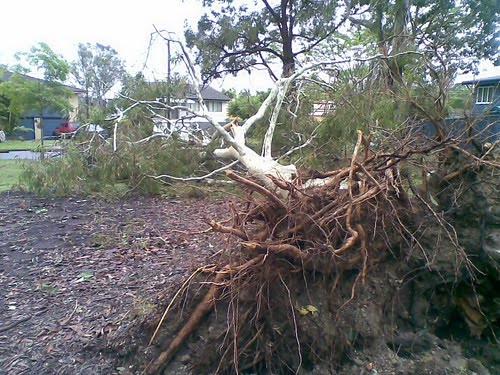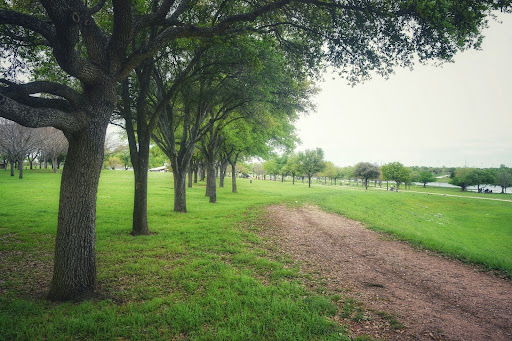
Date February 24, 2025
Category
Tree care in Denton is essential for maintaining the health of the urban and suburban environment. Trees play a crucial role in enhancing the beauty of landscapes, improving air quality, and providing habitat for wildlife. Expert tree care tips from ISA Certified Arborists can help residents ensure their trees thrive for years to come.
Proper tree maintenance includes regular pruning, which promotes healthy growth and removes dead or diseased branches. It also involves understanding the unique needs of different tree species found in Denton, ensuring that each tree receives appropriate care tailored to its specific requirements.
With the right techniques, residents can foster a sustainable tree population that not only enhances their property but also contributes positively to the community. Investing time and knowledge into tree care not only benefits individual homeowners but also supports the urban ecosystem as a whole.
Understanding Denton’s Tree Species
Denton’s diverse urban and suburban environments support a variety of tree species. Proper care begins with recognizing which trees thrive in the area and understanding their specific needs, as well as identifying common diseases that can affect them.
Native Trees and Their Care
Denton is home to several native tree species, including the Live Oak, Texas Red Oak, and Pecan. These trees are well-adapted to the local climate, exhibiting drought resistance and strong root systems.
Care Tips for Native Trees in Plano
Maintaining native trees requires a strategic approach to ensure they thrive in Plano’s climate. Here are three essential care tips to keep them healthy and strong year-round.
Watering
Native trees are well-adapted to Plano’s natural environment and typically require minimal watering once they are fully established. However, during prolonged dry spells, deep watering can be highly beneficial. Unlike frequent shallow watering, deep irrigation encourages roots to grow deeper into the soil, making trees more resilient to drought. Watering should be done early in the morning or late in the evening to minimize evaporation. Using a slow-drip irrigation system or soaker hoses ensures that moisture reaches the roots effectively without causing water runoff.
Pruning
Regular pruning is essential for maintaining the structural integrity and overall health of native trees. Proper pruning practices focus on removing dead, diseased, or damaged branches to prevent decay from spreading. It’s also crucial to eliminate crossing or rubbing branches that could lead to weak spots or breakage over time. For young trees, shaping the canopy encourages balanced growth, reducing the likelihood of structural failures in the future. The best time to prune most native trees is during late winter or early spring when they are still dormant, allowing for quicker healing and reducing stress.
Mulching
Applying mulch around the base of trees provides numerous benefits, including moisture retention, temperature regulation, and weed suppression. A layer of organic mulch, such as wood chips or shredded bark, helps insulate the soil and prevents rapid evaporation during hot Texas summers. It also acts as a buffer against extreme temperature fluctuations, protecting delicate root systems from stress. When applying mulch, it’s important to spread it in a 2–4 inch layer while keeping it a few inches away from the trunk to prevent rot and pest infestations. Regularly refreshing mulch ensures trees receive ongoing protection throughout the seasons.
By implementing these care practices—proper watering, pruning, and mulching—Plano residents can support the long-term health and beauty of their native trees while promoting a thriving urban forest.
Common Tree Diseases in Denton
Denton trees are susceptible to several diseases due to the local climate and soil conditions. Two common concerns include Oak Wilt and Hypoxylon Canker.
- Oak Wilt: This fungal disease spreads rapidly through the root systems of trees. Symptoms include wilting leaves and discoloration.
Prevention: Avoid pruning during peak growing seasons to limit spread. - Hypoxylon Canker: Commonly found in stressed oaks, this disease causes bark dieback and ultimately tree decline.
Management: Focus on overall tree health with proper watering and disease management strategies.
Identifying and addressing these issues promptly is crucial for maintaining the health of Denton’s tree population.
Seasonal Tree Care Techniques
Proper seasonal care is vital for maintaining the health of trees in Denton. Each season presents unique challenges and opportunities for growth that require specific attention.
Spring Maintenance for Healthy Growth
Spring is a crucial time for tree health. As temperatures rise, trees begin their growth cycle.
- Pruning should be done to remove dead or damaged branches. This encourages new growth and improves air circulation.
- Fertilization is important to provide essential nutrients. Use a slow-release fertilizer that targets the specific needs of urban trees.
- Mulching helps retain moisture and regulate soil temperature. Apply a layer of organic mulch around the base, but keep it away from the trunk.
Regular inspections for pests and diseases should also be conducted. Early detection can save trees from more significant issues later.
Summer Watering and Pruning Practices
Summer heat can stress trees. Adequate watering is essential to support growth and maintain health.
- Watering should be deep and infrequent, promoting root development. A tree typically needs about 1 inch of water per week.
- Regularly check for signs of drought stress, such as wilting leaves. Adjust watering schedules accordingly.
- Light pruning can be beneficial. Remove excess foliage that may hinder light penetration and air circulation.
Proper summer care helps trees withstand heat and prepares them for the fall transition.
Fall Preparations for Dormancy
As trees prepare for winter, fall care becomes important.
- Raking leaves is essential to prevent fungal diseases. Piles of leaves can harbor pests and pathogens.
- Fertilization in the fall supports root health. A balanced fertilizer helps trees store nutrients for the winter.
- Inspecting trees for damage or disease is crucial. Any issues identified now can be addressed before the harsh winter months.
Proper fall care sets the foundation for a healthy dormancy period.
Winter Assessments and Protection
Winter presents unique challenges for trees. Assessments during this season can mitigate potential damage.
- Inspect trees for broken branches or signs of disease. Removing these can prevent further issues.
- Mulching again can provide insulation for roots. A thicker layer can protect against freezing temperatures.
- For young trees, consider wrapping trunks to shield them from extreme cold and animals.
Regular monitoring during winter ensures that trees remain healthy as they await the next growing season.
Professional Arborist Services
Professionals play a crucial role in maintaining the health and safety of trees in urban and suburban areas. Knowledgeable arborists utilize their expertise to identify and address various tree health issues effectively.
When to Call an ISA Certified Arborist
It’s important to consult an ISA Certified Arborist in specific situations. Signs that warrant a call include:
- Visible Damage: If a tree shows signs of physical damage due to storms or other factors.
- Health Decline: Sudden leaf loss, discoloration, or fungal growth may indicate health issues.
- Structural Concerns: Trees with weak limbs or potential hazards to property should be evaluated.
Early intervention can prevent further damage and ensure the tree’s longevity. An ISA Certified Arborist can assess the situation and recommend proper care techniques, whether through pruning, disease treatment, or removal.
Benefits of Regular Professional Tree Assessments
Regular assessments conducted by professionals provide numerous advantages for tree health. Key benefits include:
- Early Problem Detection: Identifying pests or diseases early helps in prompt treatment.
- Improved Growth: Arborists can advise on optimal fertilization and watering practices.
- Safety Assurance: Tree assessments minimize risks associated with instability or dead limbs.
Regular evaluations can extend the life of trees and enhance their aesthetic value. By investing in professional assessments, property owners can make informed decisions regarding tree care, ensuring a healthier landscape.
Ensure Healthy Trees with Expert Tree Care in Denton
Maintaining vibrant, healthy trees is essential for Denton’s urban and suburban landscapes. With expert tree care in Denton, property owners can protect their trees from diseases, environmental stressors, and structural hazards while enhancing the beauty and sustainability of their surroundings. From proper pruning and watering to seasonal maintenance, the right tree care practices ensure longevity and resilience.
For the best results, trust TreeNewal, proudly serving the Dallas and Fort Worth Metroplex since 2017. Our ISA Certified Arborists specialize in tailored tree care solutions, providing expert disease management, pruning, and health assessments to keep your trees thriving year-round.
Schedule a consultation with TreeNewal today and give your trees the professional care they deserve!








